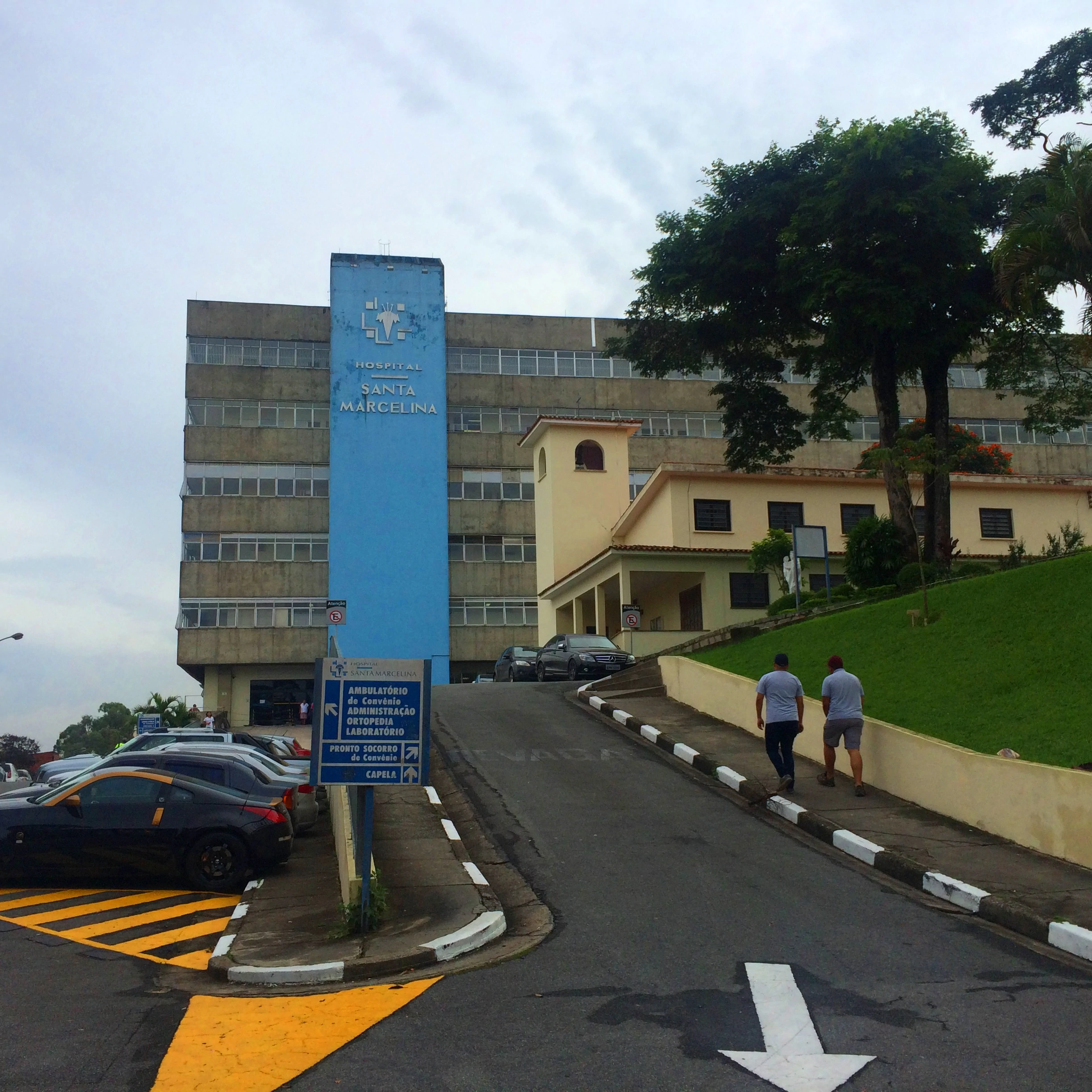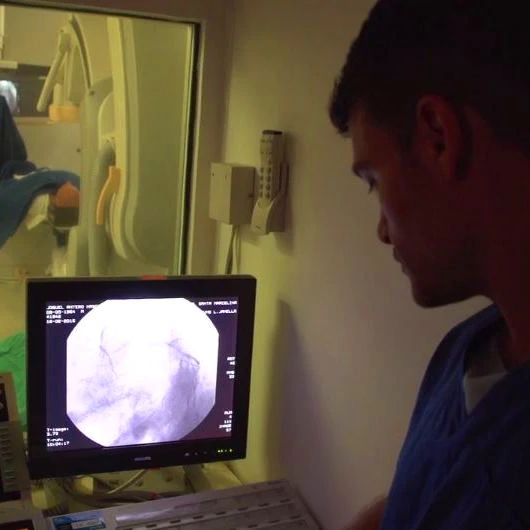Connecting Care for People in Latin America
Telemedicine partnership in Brazil and Colombia reduces mortality rate among high-risk heart disease patients.
SAO PAULO – Sixty-six year old Vera Lucia can remember the pain.
“It was a squeezing and pinching on my back and chest,” recalls the longtime child care worker. “I thought it was back pain, but it wasn’t.”
Rather, it was something that required immediate attention. Vera was experiencing a STEMI, (ST Elevation Myocardial Infarction) the deadliest form of a heart attack.
She sought help at a small clinic on the east side of Sao Paulo where Dr. Christian Marcos Goncalves instructed her to bypass the waiting room altogether and be seen right away.
“We have a saying: ‘time is muscle,’” says Dr. Goncalves. “’The quicker you make the diagnosis and do the treatment, the less damage to the patient’s heart.’”
Dr. Goncalves acted quickly thanks – in part –to a unique program that many say is saving hundreds of lives.
The Latin American Telemedicine Infarct Network, or LATIN, is a partnership between the Lumen Foundation(opens new window)
, the International Telemedical Systems, and Medtronic, and addresses Brazil’s leading cause of death – cardiovascular disease. Today, of those diagnosed, only eight percent of the population has access to the highest recommended medical care as suggested by the Brazilian Cardiology Society. And for the most serious of cases, like Vera’s, that number can mean the difference between life and death.
In Sao Paulo, LATIN is comprised of several primary care centers across the region which connect to the much larger Santa Marcelina Hospital.
Patients who arrive at these centers suffering chest pain are quickly moved into an emergency room where doctors perform an EKG. Those test results are then sent via telemedicine technology in real time to call centers staffed by cardiologists, often hundreds of miles away. Within minutes, those cardiologists advise the treating physicians on what to do next.
When a STEMI case is diagnosed, that means patients are sent immediately to Santa Marcelina Hospital, where once again, they bypass the emergency room and move directly into a specialized cardiac catheterization lab where interventionist cardiologist have already been prepped.
“When patients come in, it triggers an entire chain,” says Dr. Goncalves. “Before LATIN, some patients would wait two to four hours. That was in the old days. It’s all very quick now.”
At Santa Marcelina, Dr. Marco Antonio Perin coordinates the program.
“LATIN has been producing excellent results,” says Dr. Perin. “Having the capacity to interrupt a patient’s heart attack results in saved heart muscle and an improvement in their quality of life.”
In the first two years of the program at Santa Marcelina, LATIN increased the number of STEMI cases treated by 30 percent and reduced STEMI mortality by 50 percent. The program was so successful, Medtronic and their partners expanded to Colombia where they are seeing similar results.1
“Patients are coming to the cath lab within 40 minutes,” says Monique Bourget, the medical director at Santa Marcelina. “This is a less privileged area and they are receiving top care for anyone with an infarc.”
Between Brazil and Colombia, 100 LATIN operational centers are now open and approximately 124,000 EKGs have been transmitted. Of those cases, 1 percent has been identified as STEMI and 47 percent of those received immediate treatment.
“We can proudly say that we’re saving a life per day in the last two years in Colombia and Brazil,” says Nilyan Herrara from Medtronic. “We have been able to live out Medtronic’s Mission to alleviate pain, restore health, and extend life.”
Vera Lucia says she’s grateful to be on the receiving end of that Mission.
“Too many lives are lost because of the lack of immediate care,” she says. “I love life, so for me it’s the best thing that has happened.”
In partnership with the Lumen Foundation and ITS, Medtronic plans to launch LATIN in Mexico and Chile later this year.

